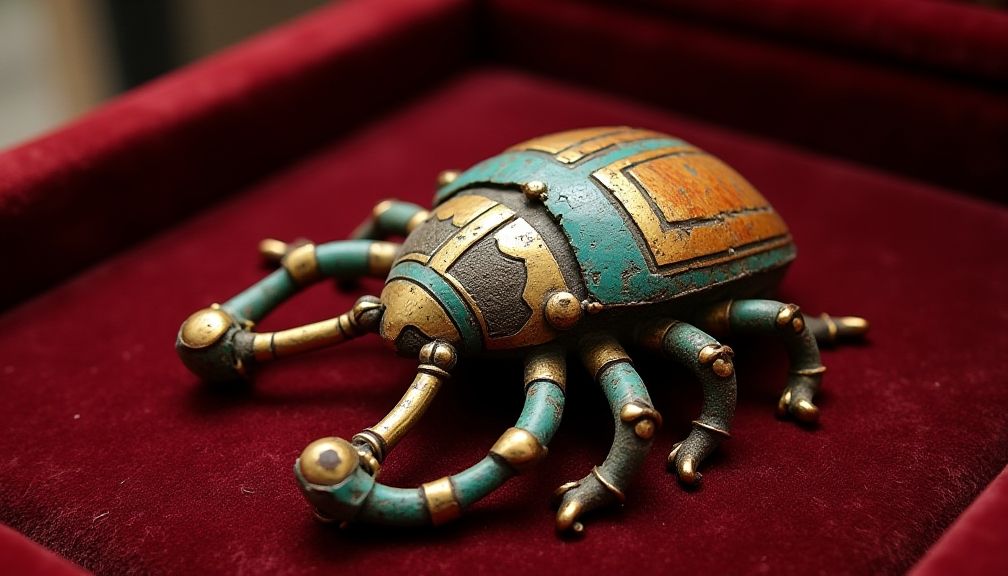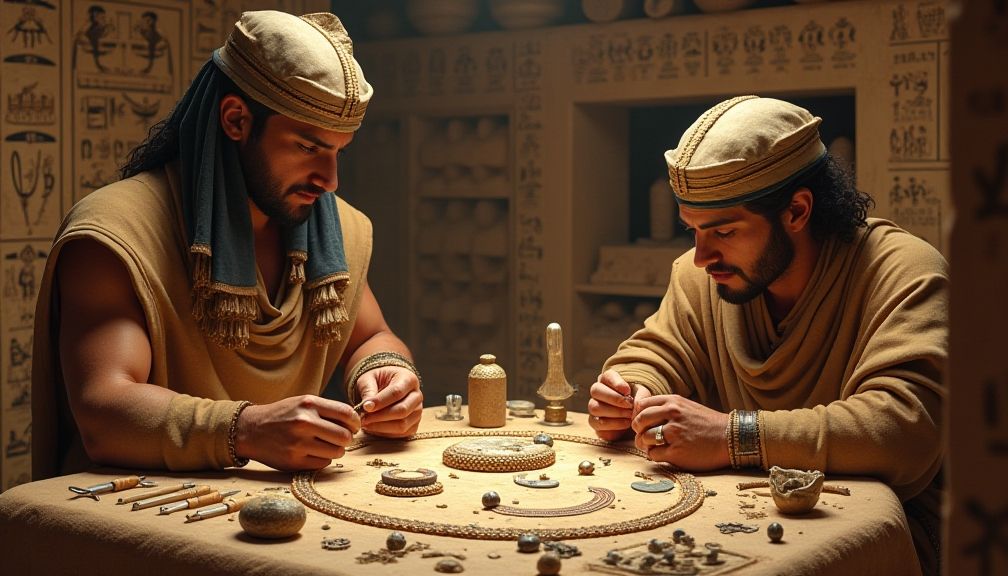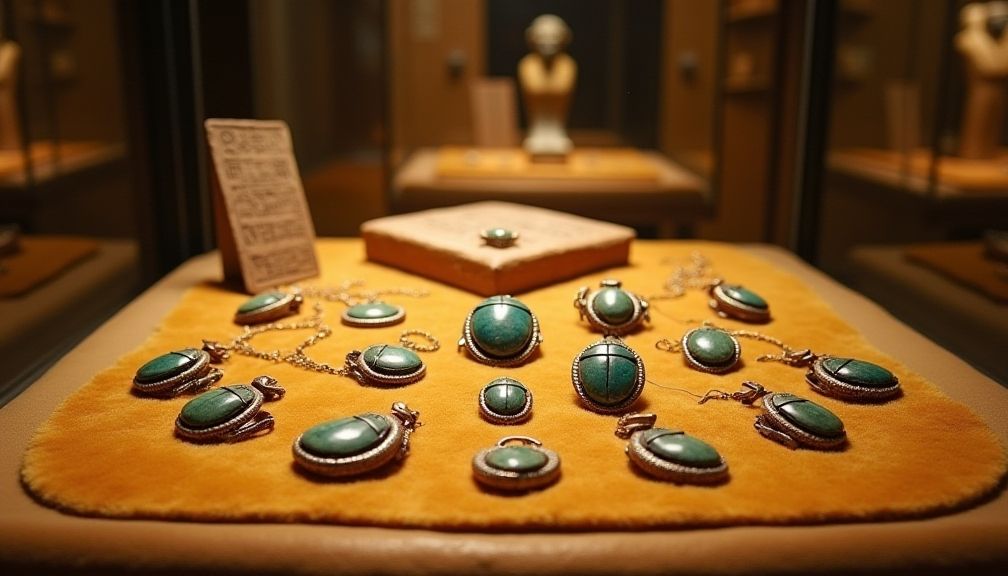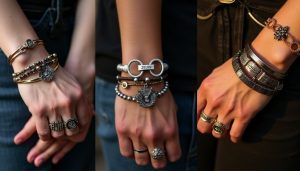The fascination with ancient Egyptian culture has persisted for centuries, captivating the imaginations of historians, archaeologists, and people from all walks of life. One of the most intriguing aspects of this rich civilization is its affinity for jewelry, particularly scarabs. Scarab jewelry has become an iconic representation of ancient Egyptian artistry and spirituality. But why did ancient Egyptians hold this symbol in such high regard? In this blog post, we will delve into the significance of scarab jewelry, exploring its historical roots, cultural meanings, and enduring legacy.
The Symbolism of Scarabs in Ancient Egypt
Scarabs, or scarabaeidae, are beetles renowned for their unique behaviors. Ancient Egyptians observed these beetles rolling balls of dung, which they interpreted as a powerful metaphor for life, death, and regeneration. In Egyptian mythology, the scarab would often symbolize the sun god Ra, embodying the cycle of life and resurrection. This connection to the sun made the scarab a quintessential symbol of creation and renewal.

Beliefs and Mythologies Attached to Scarabs
The mythology surrounding the scarab beetle added layers to its meaning in ancient Egyptian society. It was thought that every morning, Ra would roll across the sky in a chariot, much like the scarab rolls its dung ball. The daily journey of the sun represented the cycle of life and the promise of resurrection after death. Scarabs were often depicted in tombs and on amulets as a means to ensure safe passage to the afterlife, warding off evil spirits and protecting the deceased.
Scarabs as Amulets
In ancient Egypt, jewelry wasn’t merely ornamental; it had profound spiritual significance. Scarab amulets were frequently worn around the neck or used as burial items. They were believed to offer protection and blessings to the wearer. Scarab amulets were also placed on mummies to keep them safe in the afterlife. This usage underscores the beetle’s importance as a spiritual guide and guardian.
Craftsmanship and Artistry
The craftsmanship behind scarab jewelry is remarkable. Skilled artisans used various materials, including gold, silver, turquoise, and lapis lazuli, to create intricate designs. Each scarab was meticulously carved and often featured hieroglyphics that conveyed further messages about the wearer. The detailed artistry involved in creating scarab jewelry attests to the advanced skill level of ancient Egyptian craftsmen.
Types of Scarab Jewelry
There are several forms of scarab jewelry, each serving a different purpose or meaning. Common types of scarab-related jewelry include:
- Necklaces: Often embodying intricate designs, these necklaces showcased scarabs alongside other symbols, providing both beauty and protection.
- Bracelets: Scarab bracelets were believed to offer blessings and safeguard the wearer from harm.
- Rings: Scarab rings were often personalized with hieroglyphics, adding a unique element to each piece. These rings signified status and were sometimes handed down through generations.
Historical Significance of Scarab Jewelry
Scarabs also possess historical significance that offers insights into the values and beliefs of ancient Egyptians. Many royal tombs contained exquisite scarab jewelry, often accompanying the deceased in the journey to the afterlife. One of the most notable examples is the scarab of Pharaoh Amenhotep III, which symbolizes power, wealth, and protection.
Scarabs in Ancient Egyptian Society
Scarabs permeated many aspects of ancient Egyptian life. From religious ceremonies to funerary practices and everyday adornments, they were omnipresent. Jewelry served not just as a personal expression but also as a reflection of one’s social status. Wealthy individuals adorned themselves with elaborate scarab jewelry, while the lower classes fashioned simpler versions.
Further Reading:
The Enduring Allure of Scarab Jewelry
Today, scarab jewelry continues to captivate people across the globe. Modern interpretations of scarab motifs can be found in contemporary jewelry designs. The meanings behind scarabs—themes of protection, rebirth, and transformation—resonate with many, making these pieces timeless treasures.
Scarabs in Popular Culture
The influence of scarabs extends beyond the confines of ancient Egypt into pop culture. Films, literature, and art frequently reference the iconic beetle. They symbolize mystery, power, and ancient wisdom. Such representations contribute to the enduring fascination with scarabs and their associated jewelry.
How to Incorporate Scarab Jewelry into Modern Fashion
For those interested in donning scarab jewelry today, there are numerous ways to do so stylishly. From statement necklaces to delicate rings, scarab motifs can easily blend into modern fashion. Wearing scarab jewelry not only adds an element of uniqueness to an outfit but also connects the wearer to centuries of history and symbolism.
Where to Find Authentic Scarab Jewelry
For those looking to invest in authentic scarab jewelry, it’s essential to know where to look. Egyptian antiques dealers, reputable online marketplaces, and museums with gift shops are excellent places to start. When purchasing, ensure that the pieces come with documentation to verify their authenticity.

DIY Scarab Jewelry Projects
For the creatively inclined, making your own scarab jewelry can be an enjoyable project. Using materials like polymer clay or metal, individuals can craft their own amulets or decorative pieces. This not only allows for a personal touch but also provides an opportunity to delve deeper into the history and significance of the scarab.
Conclusion
The allure of scarab jewelry in ancient Egypt is a multifaceted story of art, mythology, and cultural significance. These exquisite pieces connected the living to the divine, offering protection and hope for resurrection. With their rich symbolism, scarabs continue to inspire and enchant, reminding us of the richness of ancient civilizations and the timeless human connection to the divine. Whether for their beauty, significance, or history, scarab jewelry will undoubtedly continue to hold a special place in hearts and on bodies for generations to come.








